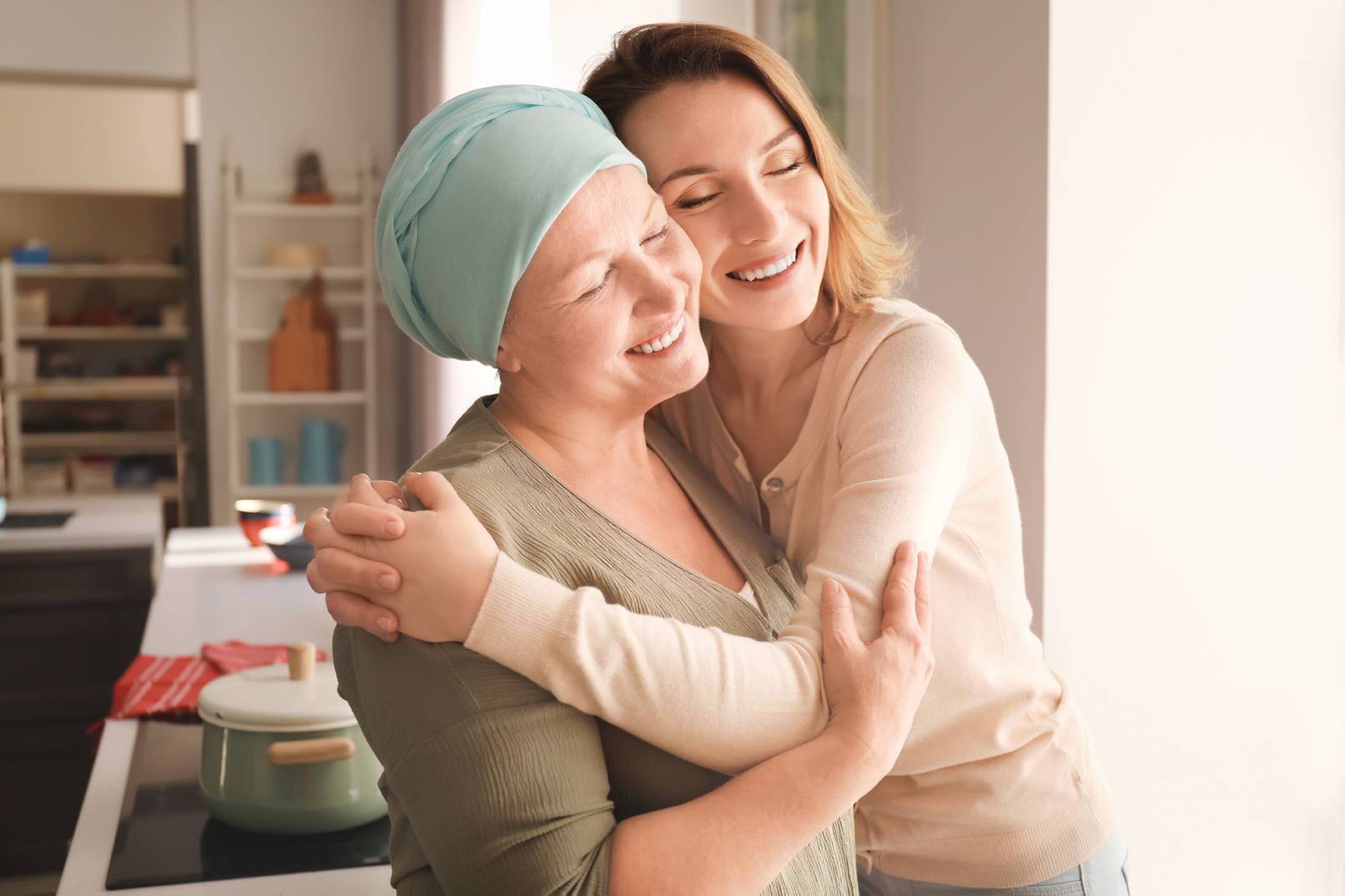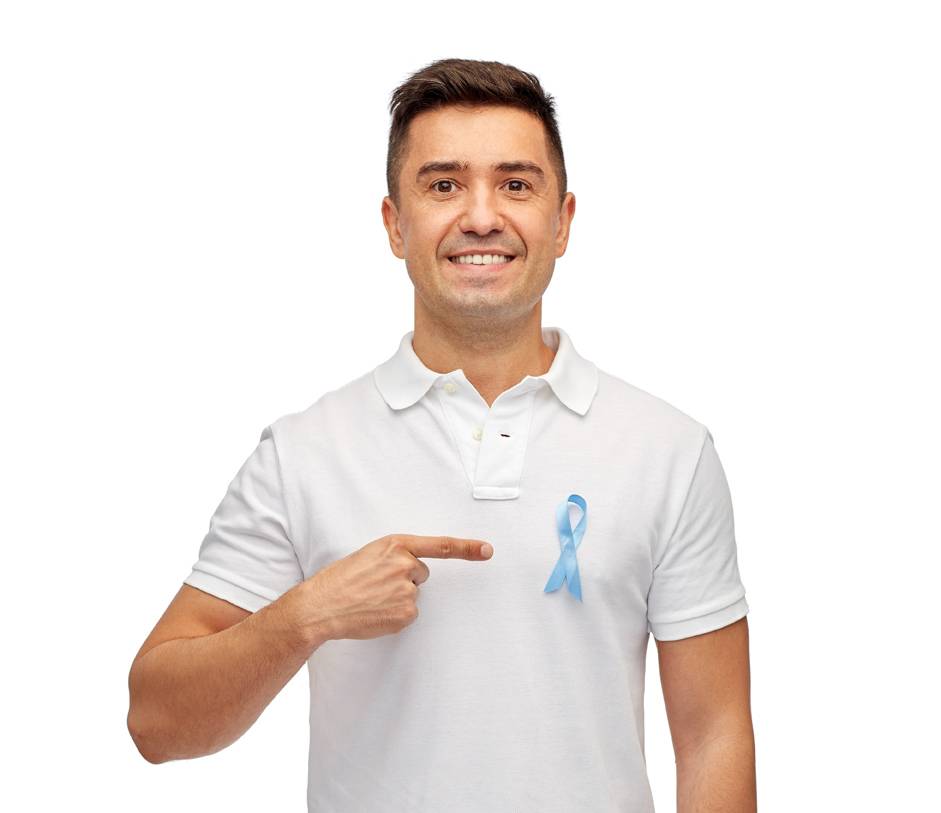Cancer
The first question most people ask before they begin an exercise program is:
“Is it safe?”
The answer is YES, with a trained professional such as an Accredited Exercise Physiologist.
Long gone are the days of rest, rest, rest.
Exercise has been shown to improve the effectiveness of rehabilitation during and after cancer treatment.


Benefits of exercise during and following treatment for Cancer
IMPROVEMENTS
- Muscle strength, mass and power
- Quality of life
- Body composition and bone health
- Physical functioning and fitness
- Immune function
- Cancer treatment adherence
- Body image, mood and self esteem
- Cognition
- Sleep quality
REDUCTIONS
- Duration of hospitalisation
- Psychological and emotional stress
- Depression and anxiety
- Number and severity of treatmentrelated symptoms and side effects (e.g. pain, fatigue, lymphoedema, and nausea)
- Sexual dysfunction
- Risk of cancer recurrence and mortality
Our clients love the sense of control and achievement they get from exercise, regardless of how little or how much they’re able to do on any given day.
Discover how our Exercise Physiologists can help you…
You are unique and as such your Exercise physiologist will prescribe exercise to compliment your treatment/recovery and has the understanding to safely adapt your program according to changing symptoms.
This is the same as how your doctor provides care that is best for you because no two people have the same response to cancer.
When you talk with our Exercise Physiologist, we will cover with you the following:
- How we are your best option for getting back to an active state either during or following your treatment.
- How we personalize exercises to make them perfectly tailored for you and your specific health needs, unlike other generic programs given by a physiotherapist or other exercise physiologist.
- How your return or uptake of exercise should be a progressive step in your rehabilitation.
- How we while ensure your safety and well being is managed.
- How the services we offer at Adaptive Allied Health will be nothing like what you’ve experienced elsewhere.
- Why most people who start out with a sceptical attitude about Exercise & Strength Therapy grow to love what we do for them and recommend us to their family and friends!

Health Services
Not everyone knows that Accredited Exercise Physiology is covered by some public health schemes and private insurances.

NDIS

Medicare Plans

Veteran Affairs

Private Health Funds
Commonly Asked Questions
The most common side effect across all cancers is cancer-related fatigue. This form of fatigue occurs regardless of recent levels of physical or mental activity. It is persistent and distressing, doesn’t get better with rest, and interferes with everyday life.
Other side effects can include: pain; lymphoedema (swelling); gaining or losing weight; lowered immune function; peripheral neuropathy (tingling and/or weakness in the hands/feet); nausea and vomiting; loss of lean muscle mass; cardiac toxicity (damage to the heart muscle).
Changes to muscle and joint function can occur after surgery, for example shoulder stiffness (breast cancer); neck stiffness (head and neck cancer); pelvic floor muscle weakness (gynaecological and prostate cancers).
Exercise can improve the majority of side effects of cancer treatment:
- Moderate-intensity aerobic exercise improves cancer-related fatigue
- Specific muscle strengthening and flexibility exercises can improve joint and muscle pain
- Being more physically active in general can also improve muscular pain
- Exercise is a routine component of lymphoedema management
- Exercise can be used to control weight gain, and stimulate appetite if weight gain is the aim
- Exercise can stimulate immune function
- Balance retraining improves function in people with peripheral neuropathy
- Resistance training (i.e. lifting weights) stimulates the growth of lean muscle mass
- Aerobic (cardiovascular) exercise improves heart health, and reduces the risk of cardiovascular disease
In addition, exercise improves mood (mental and emotional health), and can provide people with a cancer diagnosis with an important sense of control over an aspect of their treatment.
People with cancer who exercise regularly have fewer and milder side effects from their treatments and are therefore more likely to be able to complete the full course of treatment. This includes feeling less tired and distressed, being better able to continue normal activities and feeling better about their quality of life. Exercise also supports immune function and can reduce the risk of co-morbidities such as cardiovascular disease and osteoporosis, which can develop following treatment. Research suggests exercise may help lower the chances of cancer coming back and may help you live longer.
People who exercise were found to be at reduced risk of developing a secondary cancer when compared to those who did no or little exercise.
As many cancers are associated with modifiable factors such as physical inactivity, becoming more physically active can have flow-on effects to reducing other lifestyle-related diseases such as diabetes and cardiovascular disease.
There is emerging research that suggests being physically active during chemotherapy treatment helps patients to tolerate the treatment, and therefore receive the full dose of treatment. This in turn means the treatment is more effective at killing the cancer.
Before providing you with an exercise program, your Exercise Physiologist will conduct a thorough assessment of your general health and physical fitness. They will seek medical clearance from your doctor if they have any concerns about your medical safety to exercise.
The exercises prescribed to you are individualised to your specific needs, your current level of physical fitness, your stage of recovery, and your exercise preferences. Most importantly, your exercise program will be in line with your goals and what you want to achieve.
Aerobic exercise (also known as cardiovascular exercise) makes you puff and pant, and gets your heart racing.
Resistance training (also known as strength training) involves strengthening major muscle groups against resistance – either your own body weight, resistance bands, free weights, or machine weights.
Your exercise physiologist may also prescribe specific exercises to you to target specific impairments, such as shoulder stiffness, lymphoedema, or poor balance. These exercises are also important, and can be integrated into other forms of activity like those described above.
If you find exercise daunting, remember that doing something is better than nothing, and doing a bit more is better than doing a little bit. Speak to your exercise physiologist about finding a program that is right for you.
Your exercise physiologist can help you to start small, build success, and set goals.
You should think of your personal Exercise Physiologist as an educator and a friend. Not only will they walk you through different exercise sequences, but they will also show you how to exercise safely, effectively and take into account cancer related fatigue.
Your exercise phsyiologist can help you start with short, simple exercise sessions that you can do during the time of day that you feel the best.
Exercise is the most effective treatment for cancer-related fatigue – building up your physical strength will help you cope with the fatigue.
Other things to do to maximise your energy levels for exercise: avoid the hottest time of day; wear loose and comfortable clothing; wear a hat if outdoors; listen to upbeat music; have something to eat 2 hours before your session; and drink plenty of water to stay hydrated.
Yes – people with advanced cancer still benefit from exercise, and can exercise safely.
The focus of exercise for people with advanced cancer is to maintain strength and function so that people and their families can participate in activities that they enjoy, and remain safely at home as long as they want.
Your exercise physiologist can help you plan exercises around your goals, and help you manage symptoms such as shortness of breath, pain, and swelling.
It’s recommended that all people with cancer avoid inactivity, return to normal daily activities as soon as possible following diagnosis and incorporate exercise into their care plan.
Exercise should be tailored to your individual abilities noting that specific adaptations may be required based on any adverse treatment effects you experience, the progression of the cancer and your overall health status.
New guidelines released in 2019 recommend the following prescription to address health-related outcomes due to cancer diagnosis and treatment:
Moderate-intensity aerobic exercise, 3 times per week, for at least 30 minutes per session
Resistance (strength) training, of moderate intensity, at least 2 times per week.
IMPORTANT: It is important to know that this is not the starting point – this level of activity should be worked up to and then maintained.
Your exercise physiologist will assist you in developing a graduated exercise program to work towards these targets at your own pace.


